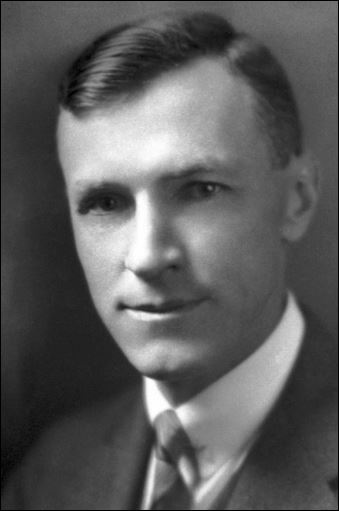Why was William P. Murphy Awarded the Nobel Prize for Physiology or Medicine in 1934?
William P. Murphy: Nobel Laureate for Pioneering Blood Transfusion Therapy (1934)
William P. Murphy, an American physician and hematologist, made remarkable contributions to the field of medicine during the early 20th century. Renowned for his groundbreaking research on blood transfusion therapy, Murphy played a pivotal role in advancing our understanding and practice of blood transfusions. In recognition of his exceptional work, he was awarded the Nobel Prize for Physiology or Medicine in 1934. This article explores the reasons behind Murphy’s prestigious honor and highlights his remarkable scientific breakthroughs.

Development of Blood Transfusion Therapy:
William P. Murphy’s Nobel Prize was primarily awarded for his pioneering work in the field of blood transfusion. Murphy focused on finding methods to successfully transfuse blood from one individual to another, overcoming the challenges of compatibility and minimizing adverse reactions.
Murphy’s significant contribution was the development of the technique of “blood typing” or blood group classification. He discovered that the blood of individuals can be categorized into different groups based on the presence or absence of specific markers on the surface of red blood cells. This discovery laid the foundation for safe and successful blood transfusions, as it enabled the matching of blood types between donors and recipients.
Establishing Compatibility and Safe Transfusions:
Murphy’s research paved the way for the identification of the major blood groups known as A, B, AB, and O, as well as the discovery of the Rh factor. These crucial findings enabled the determination of compatible blood types for transfusions, minimizing the risk of adverse reactions such as hemolysis.
By establishing protocols for blood typing and cross-matching, Murphy’s work significantly improved the safety and efficacy of blood transfusion therapy. His research led to the development of standardized procedures that are still in use today, ensuring that donated blood matches the recipient’s blood type to prevent complications.
Impact on Medicine and Transfusion Science:
William P. Murphy’s contributions had a profound impact on the field of medicine, particularly in the practice of blood transfusions. His research transformed transfusion science by providing the framework for safe and successful blood transfusions, saving countless lives and improving patient outcomes.
Murphy’s work also served as a catalyst for further advancements in transfusion medicine, including the understanding of additional blood groups and the development of techniques to detect and prevent adverse reactions. His discoveries laid the groundwork for the establishment of blood banks and the standardization of blood transfusion practices worldwide.
Recognition and Legacy:
William P. Murphy’s Nobel Prize in 1934 celebrated his exceptional scientific achievements and the transformative impact of his research in the field of blood transfusion therapy. His pioneering work in blood typing and compatibility significantly advanced the practice of transfusion medicine, ensuring safer and more effective blood transfusions.
Murphy’s contributions continue to shape the field of transfusion science, inspiring ongoing research and advancements in blood banking, compatibility testing, and the prevention of transfusion-related complications. His research serves as a testament to the power of scientific inquiry and innovative approaches in improving patient care and saving lives.
William P. Murphy’s Nobel Prize in 1934 honored his groundbreaking contributions to the field of medicine and his pivotal role in advancing blood transfusion therapy. His research on blood typing and compatibility laid the foundation for safe and successful blood transfusions, revolutionizing the practice of transfusion medicine and improving patient outcomes worldwide.
Murphy’s legacy continues to guide medical practice and inspire advancements in transfusion science. His work serves as a reminder of the transformative impact that dedicated researchers can have on the field of medicine, reaffirming the importance of scientific inquiry and innovation in improving human health and well-being.




